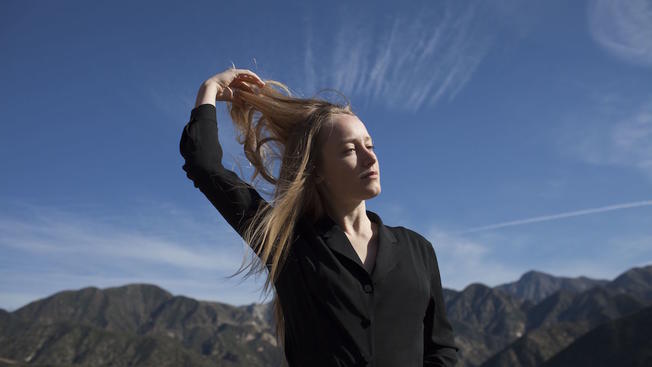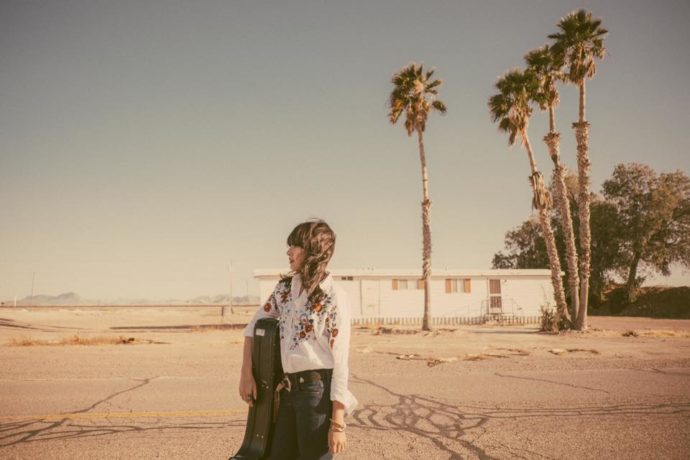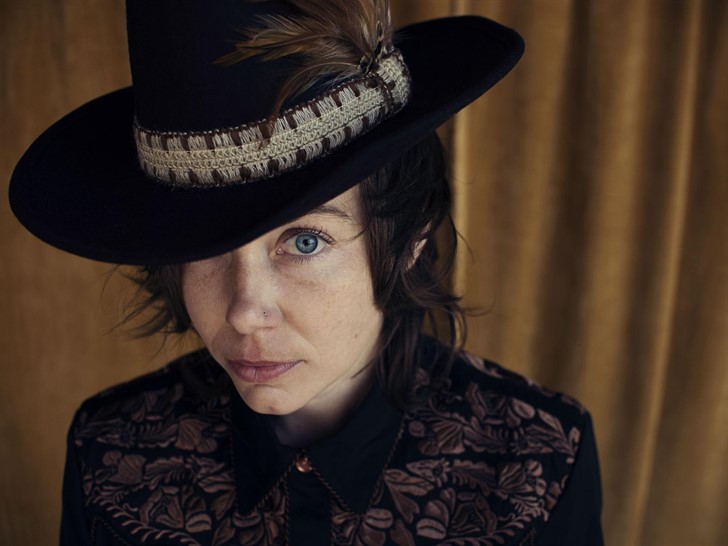Five Women Artists You Should Know

To celebrate International Women’s Day, we’re offering a collection of woman artists you should know about, taken from the On the Verge sections of recent issues of Relix.

Ruby Amanfu
Nashville, Tenn.—Songs of Genuine Expression
Ruby Amanfu’s vision for her music has changed significantly over the past few years. The artist, born in Ghana and raised in Nashville, sees each musical effort as its own piece of work. Her last solo album, Standing Still, dropped in 2015 and Amanfu is now working on her next one. For the singer, it’s becoming more important to use music as a means of genuine expression. “I still like for there to be a singular and direct message in each song I write or sing but, lately, I’ve been most influenced by music that says what it has to say with a sharper edge to it,” she notes. “I’m in a season of speaking the truth—always in love—but I’m not really candy-coating things.” In the past, the musician has toured with Norah Jones and performed at the Voodoo Music + Arts Experience and AmericanaFest. She also collaborated with Jack White on the 2012 duet “Love Interruption,” served as a member of his all-female backup band The Peacocks and sang backing vocals on Beyoncé’s “Don’t Hurt Yourself” (which also featured White). This year, though, Amanfu will focus on creating music that expresses something beyond emotions. That sensibility is evident in a track she recently unveiled called “When They Go Low, We Go High,” which channels some of the discontent in America right now. “For me, art in general is in direct relation to its environment,” Amanfu says. “It’s innate in me and in many artists to express what is observed. Because of that fact alone, we have a social responsibility, and to deny it is to be disconnected from the universe, in my humble opinion,” she adds. “My most appreciated responses from ‘When They Go Low, We Go High’ have come from people who are on the same mission as me. Some heard the song before the recent Women’s March and told me that they had it playing in their headphones while they walked. I was told that it got played over the loud speakers in Utah at a rally. I’m honored by it, to say the least. It’s got a lot farther to go in reach, but this is just the beginning.”—Emily Zemler

The Weather Station
Toronto, Canada—Headphone Folk
There’s an obvious contrast between The Weather Station’s last two album covers. On 2015’s Loyalty, Tamara Lindeman stood with her back to the camera, hands twisted together seemingly in anxiety, while on this year’s self-titled record, the Toronto singer-songwriter faces the camera, staring down the barrel of the lens with determination and focus. “I wanted it to look like a Tom Petty album or something,” she says, phoning from her mother’s home in rural Canada, before the Heartbreaker’s untimely passing. “I wanted it to be super direct because the album is more direct. It’s totally my vision. I made all the decisions. It’s me. So I was like, ‘I better not hide. I better make it clear that this is what I am.’” Lindeman spent years refining her sound, which evolved from atmospheric instrumentations to lyrically poignant folk. Yet, all of her music contains a certain vulnerability and poetic spirit—a direct line from Lindeman’s psyche to her listeners’ headphones. “I’ve always made headphones music because that’s how I primarily listen to music,” she adds. “Words are really important to me. And nuance. So I feel like personal engagement is my jam.” And while Loyalty was an experiment in emotive subtlety, The Weather Station has teeth. Songs like “Thirty” and “Kept It All to Myself” are upbeat and rollicking, two adjectives that, in the past, you wouldn’t use to describe Lindeman’s sound. “This record feels like a bit more of a beast. It has a very different spirit. I don’t know if it’s subtle. It came from this feeling of necessity.”—Raffaela Kenny-Cincotta

Juanita Stein
Melbourne, Australia—Land of the Free
Australian singer-songwriter Juanita Stein has been at the helm of rock out t Howling Bells for over a decade but, in the summer of 2017, she shifted her focus, releasing her debut solo album, America. “We’ve been playing almost 12-13 years together,” Stein says, reflecting on her time with Howling Bells. “In any relationship, you feel like there comes a time where you might need a breather, to take time out for yourself.” And while the solo record diverges somewhat from what Stein calls the “darker, grittier” aesthetic of Howling Bells’ music, her vocal performance is still at the forefront, showing a range that stretches from husky ballads to light, lilting odes. The overall ethos of the album, as hinted at by the title, serves as a paean to the American spirit at a time when belief in such a thing may be waning. “I never sat down and attempted to access the American canon; it’s just something that I grew up with. And it was only after I finished the record that it dawned on me that, in some way, every song on that record was a direct cultural tribute to America,” Stein explains, noting how her songwriter father instilled in her a reverence for international-yet- American-leaning groups like The Band and Fleetwood Mac, along with a reluctant love for one of his favorite American poets, Bob Dylan. “I thought [Dylan] was a whiny, moaning, boring, old fart, and I just couldn’t get my head around why my father spent so many hours dedicated to this guy,” Stein says. “Having said that, now, I’m obsessed with him.”—Matt Inman

H.C. McEntire
Durham, N.C.—Home Alone
From punk bands in her early days to the country-rock outfit Mount Moriah, H.C. McEntire has spent a majority of her adult life making music. But the 36 year old says crafting her first solo record LIONHEART was the hardest thing she’s ever done. “I was terrified,” she says from her home in the woods outside of Durham. “There’s nobody you can point fingers at. It was really scary, but really empowering at the end.” McEntire wrote most of the tunes on LIONHEART at the end of 2016 and recorded them at the beginning of last year. The result is a powerful, nine-song set that showcases her voice front and center, particularly on the gorgeous gospel-tinged opener “A Lamb, A Dove,” and “Yellow Roses,” a song about romantic regret, complete with one of her most creepy lines to date: “I’m the clown who feeds the crow.” She says that these songs have a more direct narrative embedded, whereas the lyrics of Mount Moriah tend to be a bit more abstract. “There’s more of a freedom to be as poetic as I wanted, and I just leaned into that,” she says. But McEntire wasn’t alone the entire time. She had a who’s who of supporting musicians helping her out, including Angel Olsen, Bikini Kill’s Kathleen Hanna, Tift Merritt, the Indigo Girls’ Amy Ray and guitar-maestro William Tyler. But in the end, she says her singing continues to be the driving factor carrying the numbers. “I built a lot of the songs around my voice,” she says. “It’s the most vulnerable thing you can do—open your mouth and sing, and not have anything else there.”—Mike Ayers

Hannah Wicklund and The Steppin Stones
Nashville, Tenn.—Rock-and-Roll High School
Hannah Wicklund’s rock-and-roll baptism came early. At age six, the South Carolina native performed Beatles songs on the piano during setbreaks at gigs for her older brother, Luke Mitchell. “I was hanging out in Hilton Head bars watching him play, with my mom knitting in the booth,” remembers Wicklund. She made a switch to electric guitar and, at nine years old, after turning down a shot at Broadway, assembled the first incarnation of her band, The Steppin Stones. The group cut their teeth on classic-rock standards, playing ve shows a week for spring breakers and the Hilton Head summer set. By 16, Wicklund had graduated from high school and taken to the road full-time. She was also building a repertoire of original material, inspired by her sibling’s songwriting skills. “He was my guiding light in showing me the difference between just playing cover songs and playing songs I’d written,” she says. Even today, there is a song from one of her nascent pre-teen EPs on her setlist. With influences like Tom Petty for conscious song crafting and Jimi Hendrix for guitar pyrotechnics, Wicklund, now 20, recently unleashed a more mature album from her power trio. Recorded at Paul Moak’s Smoakstack studio in Nashville, the self-titled release features a song co-written with Cage The Elephant alum Lincoln Parish, but the rest of the collection is Wicklund’s own coming-of-age thesis. “I have this authentic background to draw from,” she says. “I feel like there is actually a point of view.” After dropping the LP, the singer-guitarist is looking forward to co-headlining with Mitchell’s The High Divers for the “Sibling Rivalry” tour. Even after over a decade onstage, Wicklund says she is just getting started. “I love the road. This is the coolest thing to do with my time right now.”—Larson Sutton
These articles originally appeared in the December 2017, January/February 2018 and March 2018 issues of Relix. For more features, interviews, album reviews and more, subscribe here.



















